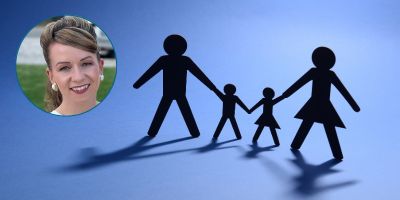Professor Ruth Swanwick returns to Ghana as early education project reaches fruition
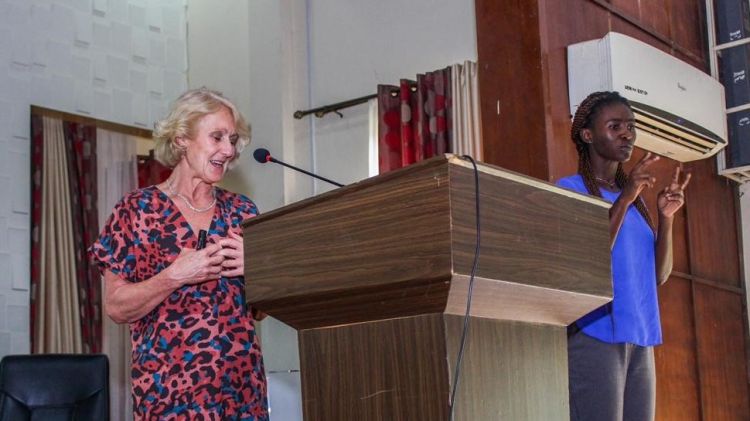
This unique collaborative project supports early education for young deaf children and their caregivers, working with the Ghanaian government, HE institutions, schools, and community groups.
Professor Ruth Swanwick who is leading the project, originally visited the country back in 2020 as it began. The return visit was an opportunity to reconnect with the project team of co-investigators, Dr Alexander Mills Oppong and Dr. Yaw Nyadu Offei who are based at the University of Education (UEW), Winneba, as well as research assistants Obed Appau and Joyce Fobi, and deaf consultants Derrick Asomaning, Richard Doku and Linda Gibbah.
This project is funded by the British Academy’s Early Childhood Education Programme and supported under the Global Challenges Research Fund. It started in January 2020 in Ghana, where early child development and inclusive education for all is a strategic priority.
The project seeks to improve opportunities to create quality early childhood care and pre-primary education and help children develop their language, communication, learning, and psychosocial well-being as they progress through early childhood
Professor Swanwick explained, “The project seeks to improve opportunities to create quality early childhood care and pre-primary education and help children develop their language, communication, learning, and psychosocial well-being as they progress through early childhood.
“Our aim was to build understandings of the social-cultural and resource dynamics that surround the developmental precarities of childhood deafness in Ghana to support early education programming for young deaf children and their caregivers.”
The visit took in a number of meetings focused on delivering long term change and impact with the key national stakeholders.
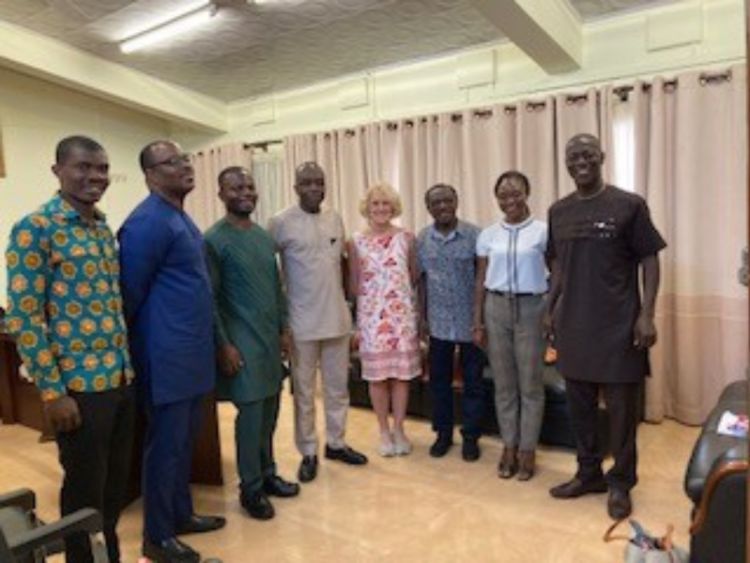
The team briefed members of the Ghanaian Ministry of Education on their plans and the progress of the project had made.
The team met with the Ministry of Education to discuss their Inclusive Education plan and deliver an official briefing on the project outcomes which will form the basis of planned on-going discussions between the MoE and UEW teams. They were also able to make a case for early education for deaf children and their caregivers to be given a specific focus in the Inclusive Education policy because of the linguistic and cultural experiences of being deaf, and the complexities of caregiving.
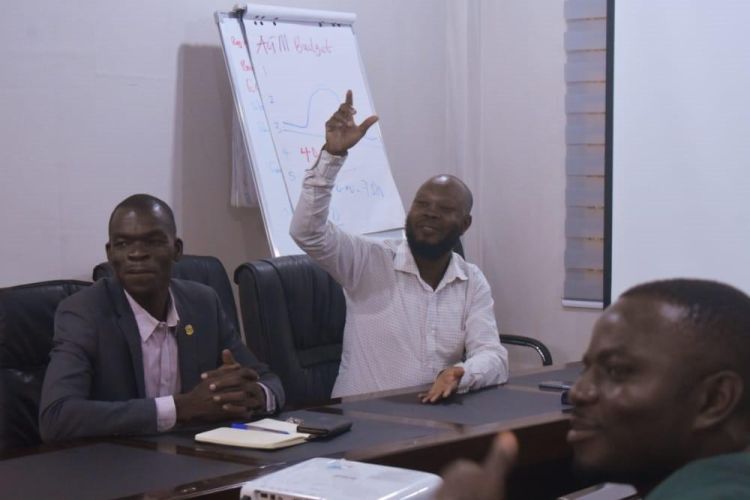
The Ghana National Association of the Deaf were positive and supportive of the project's initiatives.
A fruitful meeting at the Ghana National Association of the Deaf with Mr Juventus Duorinaa the Executive Director, drew support for the project’s planned deaf ECE leaders training initiative and also recognition on its success on changing perspectives potential of the deaf community. Mr Duorinaa also proposed a more extensive media campaign to highlight the issue.
At the visit to the partner institution, the University of Education, Winneba (UEW), the team presented findings to the Vice-Chancellor, Prof Mawutor Avoke, Dean of Faculty of Education, Director of Directorate of Research Innovation, Dean of the Graduate School, and Development and Head of Department of Special Education. They outlined plans to develop training for deaf leaders, teachers of the deaf, teacher trainers, and the central role that UEW will play in this intervention.
Professor Swanwick said: “The university is very keen to see that the initiatives developed by the project are sustained and that the development of research and practice is supported through a systematic approach to capacity building.”
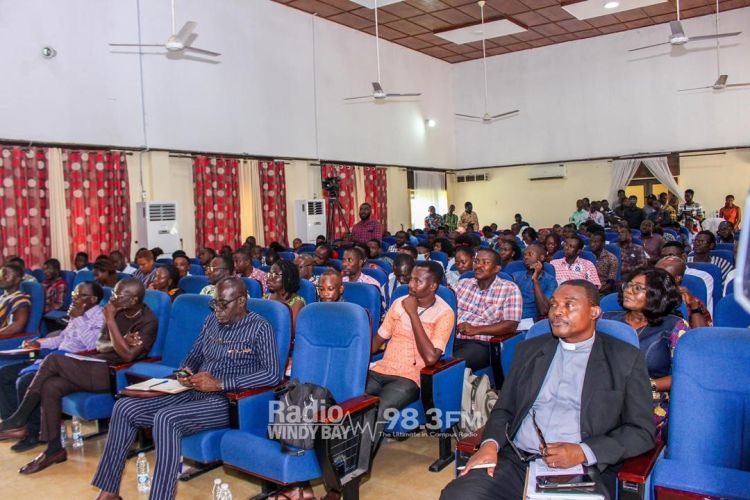
The team’s project presentation drew a large audience at the University of Education, Winneba (UEW).
Whilst on campus, Prof Swanwick presented to over 300 staff and students on lessons learned from this collaborative project, and talked about grant building and the development of African scholarships in deaf education more generally, taking questions on developing collaborations and co-writing.
This project is also responsible for the development of multimodal resources for schools and caregivers for the deaf, the establishment of workshops, mentoring partnerships, and the development of a project book in progress with Oxford University Press.
Professor Swanwick explained, “We are writing this as a co-authored text that involves mentoring partnerships across the team of all deaf and hearing project colleagues. It was really nice to have the opportunity to talk in-person about the development of the chapters and our writing approach as so much of this work has been hitherto online.”
The visit included a radio interview at Radio Windy Bay on their Disability Focus show with host Sampson Dzivor. This was streamed live with GSL interpreters and a recording is available to watch on Facebook.
Learn more
To learn more about the project and Professor Swanwick’s work, visit the project page for Early education for young deaf children and their caregivers in Ghana, and also the Language diversity in deaf education website.


